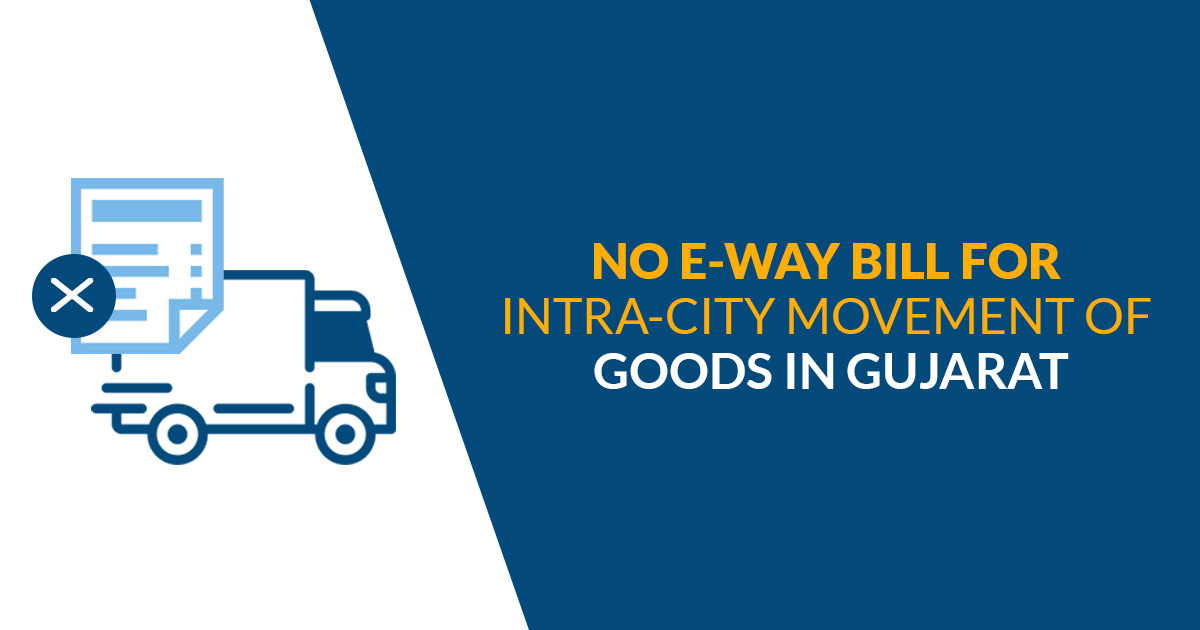In a notification released on 19 September 2018, the Commissioner of State Tax, Gujarat State, in consultation with Chief Commissioner of Central Tax, Ahmedabad, has decided to remove the e-way bill liability for intra-city movement of all types of goods and also for intra-state movement of Hank, Yarn, Fabric and Garments for the purpose of job work, irrespective of the consignment value of goods. The new law shall be applicable from October 1, 2018. This is a lesson for all other Indian states where the e-way bill is still mandatory for intra-state as well as intra-city transactions of all goods.
Gujarat and Punjab are two of the Indian states which have made changes in the e-way bill norms to make them easier and more convenient for the local businessmen and help them get back on the track in the post-GST era. It is time that other states also learn the lesson and start making the necessary updates in the e-way bill compliance norms for the benefit of all.
As per the notification released by the Gujarat Tax Commissioner, no e-way bill is required for intra-city (within a city) movement of any consignment of any value. In addition to that, the e-way bill is also not required for intra-state (within Gujarat state) movement of Hank, Yarn, Fabric and Garments for the purpose of job work, irrespective of the value of consignment. However, the e-way bill continues to be required for intra-state movement of all goods other than the ones mentioned above.
The notice also mentioned that the person carrying such consignment for which e-way bill is not required will still need to carry the basic supply documents such as the bill of supply or entry, tax invoice, delivery challan, etc..
Recommended: How To Generate GST E Way Bill Via Online or SMS in Your State?
The move from the Gujarat Tax Commissioner came at a time when businessmen in the state have been complaining about the increased compliance issues due to the added liability of e-way bill for all movements of all types of goods. It is expected to provide a major relief to the traders in the state. More states are expected to follow the trend by enabling easier e-way bill norms for businesses in their regions.










